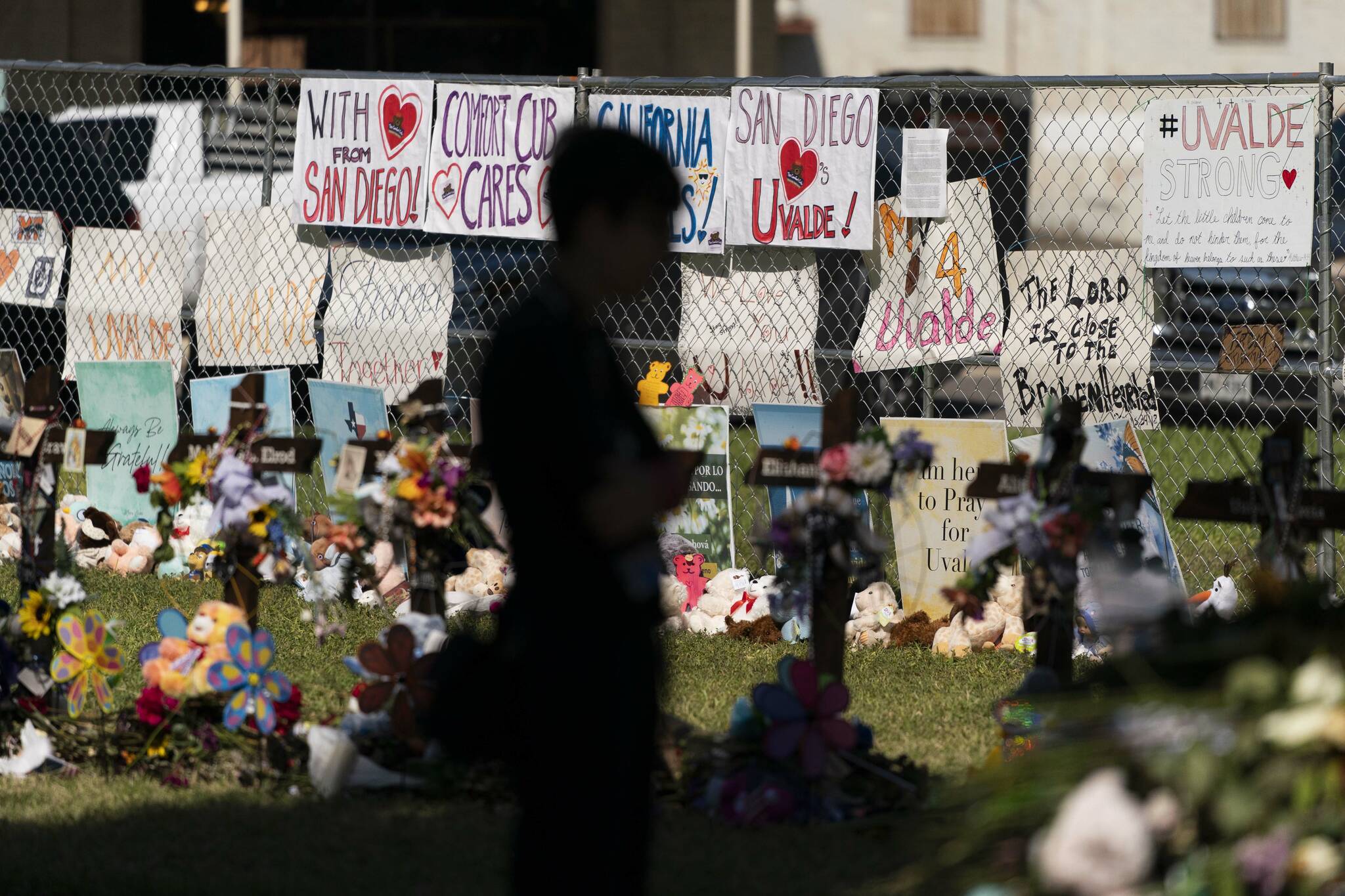By Rich Moniak
Following the elementary school shooting in Uvalde, Texas, Sen. Dan Sullivan said, “Our nation is in the initial stages of a severe mental health crisis manifesting in the worst ways imaginable.” And the common theme he identified in this uniquely American plague of mass shootings is “the social alienation of sick young men, often fueled by social media.”
Maybe he hasn’t been paying attention. But more likely our junior senator engaged in another commonality associated with mass shootings — Republican lawmakers making excuses for their inaction.
The crisis isn’t new. Almost 10 years ago, a 24-year-old gunman killed 12 people and wounded 70 at a movie theater in Aurora, Colorado. Five months later in Newtown, Connecticut, a 20-year-old man killed 20 children and six other people at the Sandy Hook Elementary school.
That year, there were five other mass shootings in which four or more people were killed. In the decade since, there’s been 67 more. Twenty of the murderers were over 40 years old.
The only thing Sullivan got right is the gender. Even though a quarter of American women are now gun owners, it’s men who predominantly use them to kill people. More than 80% of all gun homicides are committed by men. And a man was the lone shooter in 124 of the 129 mass shootings since 1982.
Make that 125 of 130. On Wednesday, a man shot and killed four people at a hospital in Tulsa, Oklahoma.
While speaking at the National Rifle Association convention last Friday, Sen. Ted Cruz, R-Texas, and former President Donald Trump unintentionally alluded to the fact that gun violence is predominantly a male problem. In Cruz’s American fantasyland, everyone knows “what stops armed bad guys is armed good guys.” Trump claimed that’s the “only way to stop a bad guy with a gun.”
But all things aren’t equal. A good guy or woman with a handgun is no match for a bad guy holding an AR-15 or similar semi-automatic weapon.
That’s what the shooter used in Uvalde. I don’t know what the dozen or so trained police officers outside the classroom were armed with, but they remained there for an hour while children inside were desperately calling 911. Shots were heard in the background of one of those calls.
In 2017, an AR-15 was used to kill 17 people at a Parkland, Florida, high school. An armed security officer on the scene there never entered the building to engage the shooter.
Both failures undermine the idea that arming teachers will prevent these tragedies. It also wouldn’t help people in hospitals, grocery stores and other public places where sick men have committed mass murder using powerful weapons that have no legitimate place in a civilized society.
The tired old argument that banning the purchase of any weapon would leave only the bad guys in possession of them is a false binary. A ban on semi-automatic weapons would have prevented some of these mass murderers from obtaining one. Absent the raw power of such guns, some might not have even attempted to commit the crime.
No one is claiming that alone will solve the problem. Like America’s success with reducing deaths caused by drunken drivers, the goal is to prevent as many as possible. To do that, all options must be on the table.
That includes raising the legal age for purchasing guns, bans on certain weapons and universal background checks. Training in gun safety and responsibility — which long ago were the National Rifle Association’s primary focus — should be mandatory for all gun owners.
Red flag laws, like the one Florida passed after the Parkland school shooting, would reduce the number of gun homicides and suicides. It allows the police to seek court orders to temporarily bar individuals deemed to be dangerous from possessing or purchasing a firearm.
Sen. Rick Scott, R-Fla., who as Florida’s governor signed that into law, called it “an example to the entire country that government can and must move fast” in response to the crisis. Now that he’s in the U.S. Senate, he thinks such laws should be enacted at the state level.
That’s standard playbook for Senate Republicans regarding gun violence. And after the next sick bad guy kills more Americans, they’ll respond with new excuses to do nothing again.
• Rich Moniak is a Juneau resident and retired civil engineer with more than 25 years of experience working in the public sector

